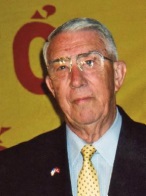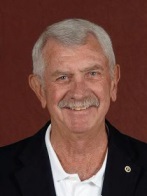named Charlie Hansen had been hit by a motorcycle while he was on a bicycle ride. As a result, his spine became severed, and he was expected to be a paraplegic. He certainly did not want to be disabled. Charlie began researching spinal injuries and discovered that hyperbaric oxygen could be advantageous in this acute stage. He purchased a chamber from Hyperbaric Clearing House that was being shipped to him directly and knew he would need a certified person to show him how it worked. In asking questions about operating the chamber, Hyperbaric Clearing House gave him Ryan’s phone number.
Charlie hired Ryan to come to Boulder for a week and train him and his people on the chamber’s operation. The relationship was certainly a good one. As Ryan remembers, “I treated Charlie for a week, wrote their policy and procedures, trained one of his manufacturing workers, and went home. Every day they called me with one concern or another. They were concerned about the oxygen being a fire hazard.”
The chamber became a bit temperamental. After weeks of constant phone calls, Charlie and his people realized they were in over their heads with the chamber and its operation. Finally, Charlie offered Ryan to move to Boulder and treat Charlie once a day in the chamber. They would let him use the chamber the rest of the time for his patients in exchange. Ryan reflects, “Wow, what an opportunity and a dream come true. But, hell no, I thought, I can’t stand to live in big cities! Where will I live? What about my beloved dog, Puppy? I thought of a thousand
excuses, including how can I quit my father again? I was sure he was getting tired of the hyperbaric scene by then."
AN OFFER NOT TO BE REFUSED
Ryan resisted for a short time in the name of personal inconvenience. Every one of his protests was met with, “We are not going to take no for an answer. Keep throwing up excuses!” Ryan then fired back with a serious concern. This had to be addressed if a hyperbaric clinic could become operational. “I need a medical director who can prescribe hyperbaric treatment,” Charlie replied, “Oh, her name is Dr. Julie Stapleton, and she can’t tell us no either!”
This was one of the most challenging decisions he had to face up to this point in his life. Ryan remembers, “Even though I swore that I would never move to the city to run a clinic, I decided to do it against my family’s wishes. I left so much in Gunnison… you know… not all risk is financial.”
This was one of the most challenging decisions he had to face up to this point in his life. "Even though I swore that I would never move to the city to run a clinic, I decided to do it against my family's wishes. I left so much in Gunnison… not all risk is financial."
Dr. Julie Stapleton reluctantly agreed to refer three of her brain-injured patients to Ryan and maintained that they had to show improvement after their hyperbaric treatment for her to stay involved. Charlie had set up this entire arrangement with Dr. Julie. That was in August 2007. It was agreed that if her patients progressed and showed evidence that they were healing, she would stay on with the program. Ryan now states, "Did it work? Did Dr. Julie stay on? She is still here and a pioneer in this hyperbaric treatment therapy!" •
ABOUT THE AUTHORS

Bob Fischer is a 1955 Naval Academy graduate and career Marine Corps officer who retired in 1982. He was Captain of Marines on the U.S.S. Saint Paul CA73, the 7th Fleet Flagship, from 1961 to 1963, when he studied four guerrilla wars in Southeast Asia and obtained the Malaya Jungle School Syllabus at Johore Bahru. He used the syllabus to establish the 2nd Marine Division Counter-guerrilla Warfare Center at Camp Lejeune, North Carolina. 20,000 Marines, Navy Seal, and Special Forces Teams were also trained there. His CIPA award-winning book Guerrilla Grunt documents this experience. He was also a task force advisor (Covan) for the Vietnamese Marine Corps from 1966 to 1968 and wrote his book Covan about this experience. From 1977-to 80, as Commander of the Defense Electronics Depot, Kettering, Ohio, his workforce set the Defense Logistics Agency's all-time performance record. For this, he was awarded the Defense Superior Service Medal. In 2010, he attended a presentation by the Rocky Mountain Hyperbaric Institute and its nonprofit Rocky Mountain Hyperbaric Association for Brain Injuries, where he learned about their recently established Healing Our Heroes fund. His involvement with other Marine veteran organizations motivated him to become a Veteran's Advocate for the clinic. Joining Grady Birdsong, they filmed the first veterans who received hyperbaric oxygen therapy (HBOT) in the original Boulder clinic and raised funds by presenting the unique HBOT story to groups in the Denver area. He was named Colorado American Legion's Veteran Advocate of the Year for his efforts in 2012.

Grady T. Birdsong was raised in Kansas before enlisting in the United States Marine Corps in 1966. After serving two tours in the Northern "I-Corps" region of Vietnam during Tet of 1968 and the DMZ in 1969, he traveled the world, enjoying a successful career in engineering, business development, marketing, and technical sales in the telecommunications/data systems, information technology systems, and the optical and fiber systems test industries. Additionally, Grady is the author of A Fortunate Passage, To the Sound of the Guns, and Echoes of Our War, with nine EVVY awards from the Colorado Independent Publishers Association (CIPA). In 2010, Grady and Bob Fischer became Marine Corps Veteran Advocates for the Rocky Mountain Hyperbaric Institute, at a time when Ryan Fullmer and Eddie Gomez were struggling to establish their brand new HBOT clinic in the industrial area of Boulder, Colorado. His early filming of the clinic's first successful TBI-PTSD veteran's treatment generated the first significant donor funds, earning $135,000. These funds enabled the HBOT clinic to move to its current site in the Professional & Medical Center in Louisville, CO, and provide a nearby home for the forty-day treatment of out-of-town veterans. Now retired, Grady lives with his wife, Pamela, in the Denver area, where he enjoys his grandchildren and spends his time writing, volunteering, and hunting big game. Grady is a graduate of Regis University in Denver, Colorado. Both authors have an ongoing commitment to veterans of all wars and continue to advocate, inform, educate, and raise nonprofit funds. Both remain Semper Fidelis.